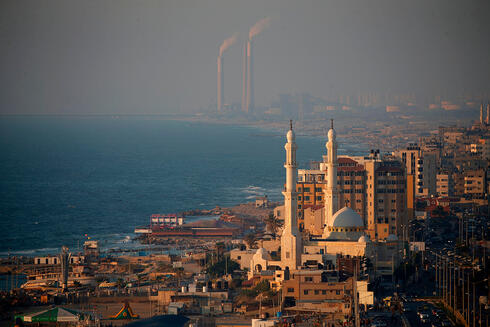Bron estimates the field contains approximately 30 billion cubic meters of natural gas, with potential revenues of around $4 billion. “It won’t turn the Palestinians into the next Qataris or Singaporeans, but it would be independent income — not foreign aid, which the Palestinian economy continues to rely on,” he said in an interview with The Guardian.
Efforts to develop the field have been stalled for nearly 30 years amid legal disputes over ownership. A Palestinian human rights law firm recently sent a warning letter to Italy’s state-owned energy company ENI, arguing that exploration in “Zone G”—where Israel’s Energy Ministry has issued six licenses—could be illegal. The letter contends that 62 percent of the zone lies within Gaza’s maritime territory, meaning Israel lacks the authority to grant exploration rights.
Palestine declared its maritime boundaries, including an exclusive economic zone, upon acceding to the United Nations Convention on the Law of the Sea in 2015, and submitted a formal claim in 2019, although Israel is not a signatory.
Bron says that international recognition—especially by countries housing major oil and gas companies—would clarify the legal status of Gaza’s offshore resources. This, he argues, would secure both a revenue stream and a more independent energy supply for the Palestinian Authority, lessening its reliance on Israel.
ENI has responded that no licenses for Gaza Marine have been issued and no exploration activity is currently underway. Meanwhile, watchdog group Global Witness has criticized the Eastern Mediterranean gas pipeline, citing its 90-kilometer route from Ashkelon, Israel, to El-Arish, Egypt. The group asserts the pipeline crosses Palestinian waters without providing revenue to the Palestinian Authority.
Bron further noted that under the 1993 Oslo Accords, the Palestinian Authority holds jurisdiction over Gaza’s territorial waters and subsoil, including authority over oil and gas exploration and licensing. He emphasized that resource control was a core goal of Yasser Arafat’s state-building efforts and remains a central issue in the Israeli–Palestinian conflict.
The Gaza Marine field was discovered in 2000 through a joint venture between BG Gas and the Palestinian Consolidated Contractors Company. The initial plan was to supply Gaza’s sole power plant and help alleviate recurring energy shortages. However, concerns over commercial viability and an Israeli court ruling that the waters were “no one’s waters”—in part because the Palestinian Authority lacked full sovereignty—halted the project. At issue was whether the Oslo framework afforded Palestinians exclusive rights generally reserved for full sovereign borders.
After Hamas seized control of Gaza in 2007, Israel further blocked development to prevent revenues from benefiting the Islamist group. BG Group subsequently froze and abandoned the project.
In June 2023, Israel approved plans for Egypt’s state energy company EGAS to develop the field—just months ahead of the Hamas-led attack on Oct. 7.
Bron concludes that Israel, with its own ample gas reserves, would lack both the motivation and legal basis to prevent a recognized Palestinian state from developing and benefiting from Gaza Marine, its only major natural resource.
